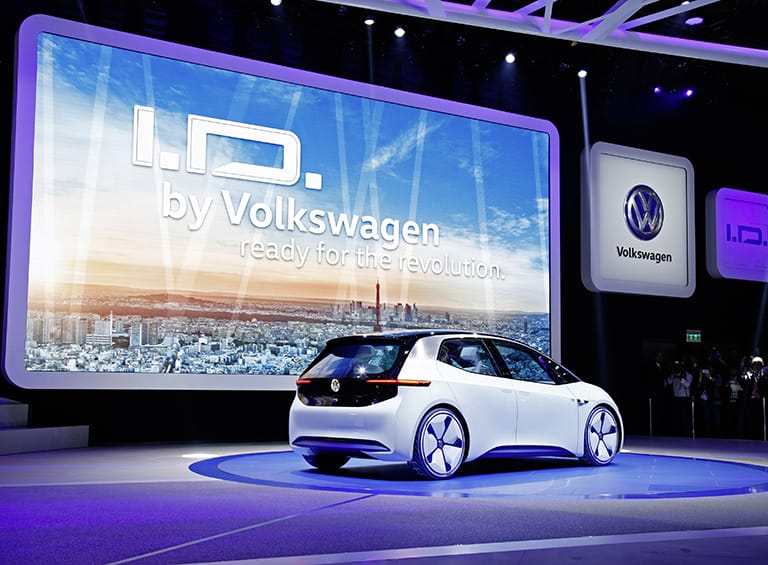Drucker School Makes Volkswagen Bid to Study Habits of EV Owners

Using car-obsessed Southern California as the laboratory, researchers at the Drucker School of Management are seeking to study whether owning an electric vehicle (EV) changes the thinking and driving habits of the people who use them.
That’s the $14-million question Drucker Research Associate Professor Chris Langdon is hoping to answer with an innovative proposal for funding from Volkswagen’s $800-million diesel-emission settlement with California officials. Langdon’s study would employ a 100-EV fleet, proprietary Drucker software, and a controlled geographic environment to investigate how humans think about transportation
“Rethinking the concept of mobility is the next logical step in the evolution of modern transportation, particularly as we take into account the environment,” said Langdon, who is also president of Pacific Coast Research, which specializes in predictive analytics and strategic simulations.
Langdon is seeking a $13.7-million grant from Electrify America, the Volkswagen subsidiary formed last year to distribute money from a settlement over the sale of nearly 600,000 diesel vehicles in California that were equipped with special software to cheat on federal-emissions tests. The company lists ones of its primary activities as increasing awareness and fostering education about the EV.
As part of the settlement process with state and federal regulators, Volkswagen will submit bids like the Drucker School’s to the California Air Resources Board and the Environmental Protection Agency. The agencies will select the winners later this month.
“Who is better positioned to do this than the Drucker School?” Langdon said. “This is standard scientific research. You ask questions, you conduct real-life experiments, you collect the data, and you analyze it to find the answers. This is what we do.”
Experts concur with the Drucker School’s unique position.
“Drucker isn’t the only organization conducting experiments in transportation,” said Roger C. Lanctot, associate director of automotive mobility services for business research and consulting firm Strategy Analytics, “but Drucker is the only organization in a position to create the conditions for multiple and serial experiments, and with the infrastructure necessary to assess the efficacy of different transportation-use cases. Drucker is positioned, with Volkswagen’s help, to turn the Wild West of car-sharing and ride-hailing into a proper Petri dish for future solution development.”
Ultimately, Langdon said, the successful result of his EV experiment is “better, faster, cheaper ways for people to get where they need to go. That’s the only way to get you out of your car and into a service like this.”
Claremont Graduate University has previous ties to Volkswagen. Last year, Tamir Bechor, a professor in the Center for Information Systems & Technology, announced he was teaming up with other top Israeli experts in collaboration with Volkswagen to develop the next generation of cybersecurity solutions for vehicles connected to internet- and cloud-based networks, applications, and services.